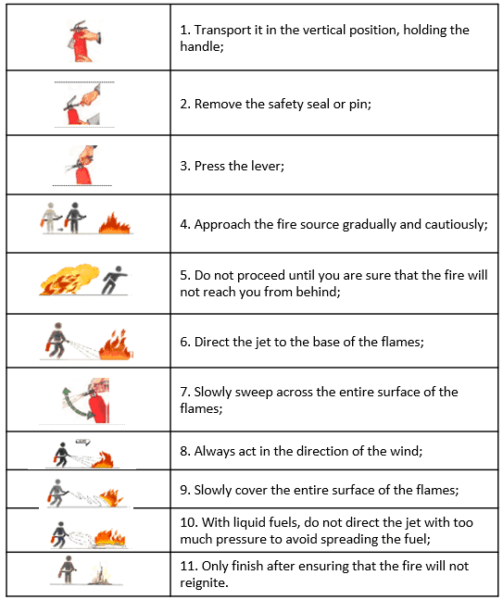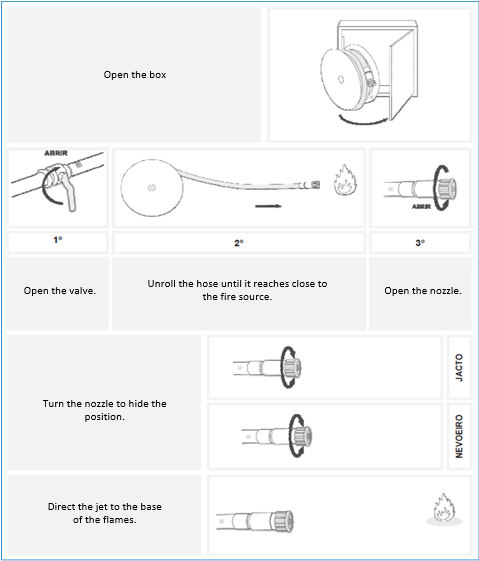Reportar a:
Caso se depare com um acidente no Complexo Sede do Grupo Casais, faça uma primeira avaliação, perguntando à vítima o que aconteceu e tente identificar as feridas mais graves.
Caso a vítima se encontre inconsciente, não abandone a vítima (exceto se não existir outra opção), ligue para o 112 e avise a Portaria que foram solicitados meios de socorro externos.
Transmita toda a informação que sabe.
Se não souber, não mova a vítima, não forneça comida ou bebida. Verifique se existem perigos à volta.
Os extintores são o meio de combate a incêndio mais comum, seja em instalações escritórios (ou estaleiro), seja em obra. O seu uso é muito simples.
Outro meio de combater um incêndio na fase inicial, são as Bocas-de-Incêndio tipo Carretel.
Como utilizar:
Qualquer pessoa que receba um telefonema de ameaça de bomba deve prestar a máxima atenção à ocorrência:
Após desligar:
Se tiver recebido formação na utilização de extintores e bocas de incêndio:
Se não tiver recebido formação, abandonar imediatamente o local, colocando-se em local seguro, sem entrar em pânico.
Ao ouvir o sinal de evacuação (Mensagem de voz ou som contínuo do sistema automático de deteção de incêndios):
Não voltar ao interior do edifício até ser decretado o fim da emergência.
Report to:
In Case of an Accident with Victims
If an accident occurs at the Casais Group Headquarters , make an initial assessment by asking the injured party what happened and try to identify the most serious injuries.
If the person injured is unconscious, do not leave them (unless there is no other options).
Call the national emergency number 112, and then inform the Reception that external rescue services have been requested.
If unsure, do not move the injured person, and do not offer them food or drink. Check for potential hazards in their vicinity.

Other means of fighting a fire in its initial stages include the use of fire hose reels.
Instructions for use:

In the event of an alarm
In the event of a bomb threat
In the event of fire
In the event of evacuation
In the event of an explosion
In the event of an earthquake
In the event of an accident or medical emergency
© 2026 Grupo Casais
Todos os direitos reservados
Newsletter Casais
Newsletter
Subscreva a nossa newsletter e fique sempre a par de todas as novidades
Formulário de Sugestões, Dúvidas e Reclamações